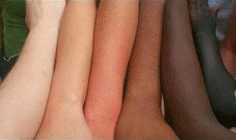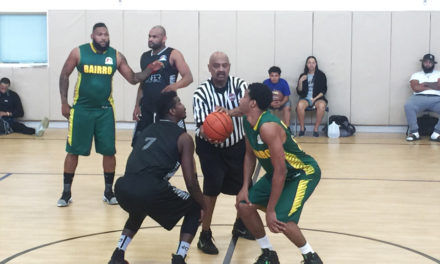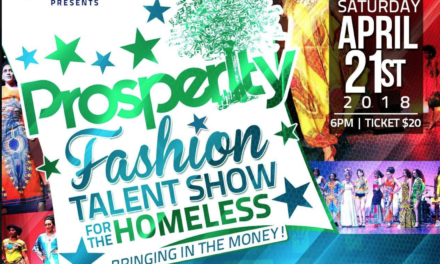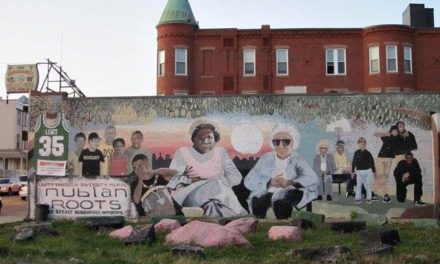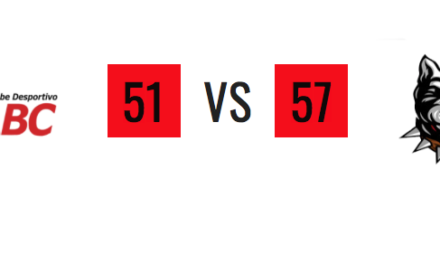The difference in what is favored by men across cultures has been talked about a lot, sometimes politically, (when it comes to skin tone) and usually in comedy or hip hop songs (when it comes to talking about women’s body parts, especially when the more African features are preferred.) With flashbacks to middle school the focus of what inner city Cape Verdean boys were talking about was not that different from what other culturally African groups were focusing on. But a story that I never heard was a woman’s perspective on being someone who grew up in a Cape Verdean Community, where there were cultural norms of skin tones and body parts, and then going out into the world and having her features clash with the norms and stereotypes out there.
The woman who told me the story is in her 50’s, grew up in Wareham, and spent 22 years in the military. The first thing I want to talk about is how she was classified in military documents. She is Cape Verdean and she grew up thinking everyone is Cape Verdean. But as soon as she stepped out of that community her features, skin tone, body parts, hair, suddenly became what everyone is looking at and trying to classify.
She recalled being pulled aside by the military and going into a room where a woman asked her, “What are you?” They had looked through her file and apparently she had been classified with at least 6 different words or Categories.
“I’m Cape Verdean.”
They had just wanted to see her because without ever asking her, the medical record had her as “Negro” and what is most significant about that word to me is that this was 1982, NOT 1962.
An administrative document had her as Hispanic, her 214 papers had her as Mexican, some other form had her as African American… again there were 6 different categories.
When she was in Arkansas people would stare at her and she felt as if they were judging her, especially the women. Many bolder white women would ask her, “Is your mother white?” But not in an innocent friendly way. In a way that bespoke wrongdoing of some sort. She started to answer, “My father was white and my mother was black.” mostly just to annoy them.
Others would ask if she was “Red Bone.” Red Bone can mean mixed, but it is also a group of people that are a mixture of other races that are culturally separate.
She felt that black women despised her for her skin tone and wanted to keep her away from the black men even if those men were not theirs.
She had better luck socializing with men, but there were many attempted rapes, over 25. She fought off all of them.
Stepping out of the country made her privy to some very strange folklore as well.
“In Germany an old woman running a crystal shop grabbed my arm, looking at my skin and wringing it saying, ‘War Baby? War Baby?'”
“She tried to give me a tea set for free. The sergeant that was accompanying me got upset, saying, ‘No she doesn’t want it.'”
“Later I found out that after World War II white soldiers, did not want the German women getting with the Black American soldiers. So rumors and stories were spread that black men grew tails at night. Despite such stories, there were many war babies of mixed race born in Germany.”
Our heroine married an African American man and did find a friend in the military who was another light skinned Cape Verdean woman. They talked and chatted and they had set up a double date where they would go out with their husbands. The color of our heroine’s husband just never came up in conversation.
On the day of the dinner, her husband for whatever reason, could not come, but her friend’s husband was white. After our heroine pulled out a picture of her husband, the other woman said, “Ohhh! You went to the black side?”
“The rest of the dinner was awkward. You know like on TV when people just play with their food with the fork and nobody really talks or says anything. Like that. We never saw each other again.”
“Later in Panama, I ran into trouble when I had my son at the supermarket. This was 1989, and for what ever reason, in the Cape Verdean Culture or maybe it was just my household, I believed that cutting a boy’s hair when he was young would bring bad luck. So with his hair and his darker skin tone people started looking at us and came up and would ask, ‘Whose baby is that? Are you keeping someone’s child?'”
But even after returning to the Cape Verdean Community, relatives and children would ask, “How did she get a baby so black?”
“I don’t remember anything about race when I was a child. Just that some of the older generation would use the word ‘Colored’ and something about the word made me feel weird. I guess it was always there, but I just didn’t think about it. But later I really noticed that there were light skinned Cape Verdean relatives of ours… first cousins, that would pretend that they didn’t see us in public.”
“I got to see the whole world though and that really changed my perspective. In Korea, I worked with the orphanages there, and there were dark and light skinned Korean children who were mixed and they were kept separate and treated differently from other Korean children.”
“Now my own daughter, I raised to treat everyone equal. So she had all types of boyfriends. Korean, Black, white. And her Korean boyfriend didn’t work out because the family thought it would kill the grandmother. But the weird thing was the boyfriend’s mother had ended up marrying a white man, so it was like a double pain in the heart that the mother married who she wanted but the boyfriend couldn’t. But I just taught her to accept everyone.”

